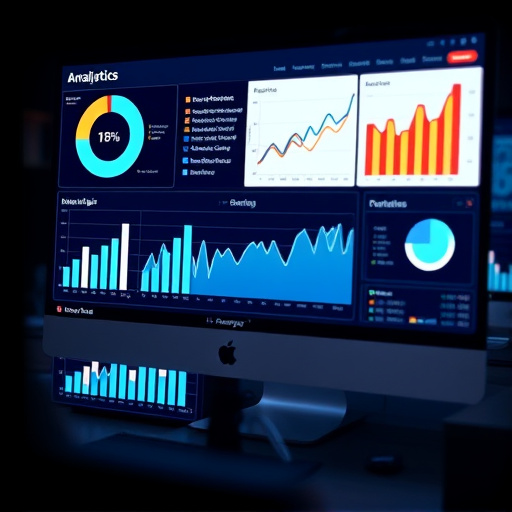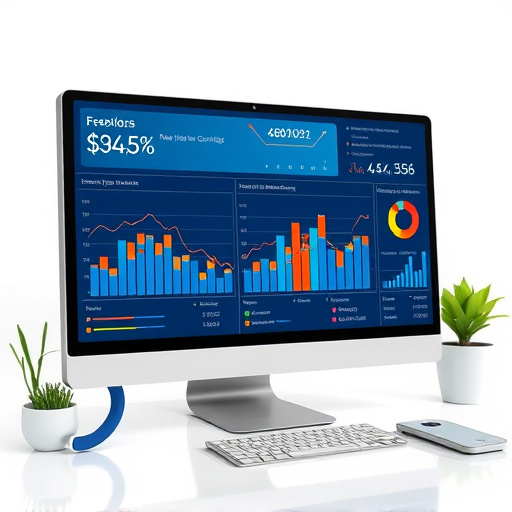SEO agencies assess campaign effectiveness using metrics like mobile design, keyword rankings, organic traffic, bounce rates, and local citations. They optimize for mobile usability to enhance ranking and user engagement. Analytics tools track website performance, helping refine content strategy and user experience. Local businesses benefit from geographic targeting in analytics. KPIs like conversions and ROI measure campaign success, enabling optimization of digital marketing strategies and driving profitability through local search optimizations and link building services.
An SEO agency’s ability to measure campaign performance is vital for gauging success and making data-driven optimizations. This article delves into the key metrics that drive evaluation, exploring how agencies analyze website traffic and user behavior to uncover actionable insights. We’ll dissect methods for tracking conversions and calculating return on investment (ROI), providing essential tools for SEO agencies to demonstrate campaign effectiveness and inform future strategies.
- Key Metrics for SEO Campaign Evaluation
- Analyzing Website Traffic and User Behavior
- Tracking Conversions and ROI Measurement
Key Metrics for SEO Campaign Evaluation

When evaluating an SEO campaign’s performance, several key metrics stand out as essential indicators for any SEO agency. The primary focus should be on understanding user behavior and the search engine’s perspective to ensure the campaign aligns with both organic growth and business objectives. One crucial metric is mobile-friendly website design, as Google’s algorithm prioritizes mobile usability. A well-optimized, responsive web design can significantly impact a site’s ranking and user engagement.
Additionally, tracking keyword rankings, organic traffic volume, and bounce rates offers valuable insights. SEO agencies monitor keyword performance to gauge success in targeting specific search terms. Organic traffic analysis reveals the effectiveness of content strategies while bounce rate data helps assess user interest and website usability. Local citation services also play a role in local SEO campaigns, ensuring consistent business information across various online platforms, which can boost visibility and attract nearby customers.
Analyzing Website Traffic and User Behavior

An SEO agency evaluates website traffic and user behavior to gain insights into campaign effectiveness. By leveraging analytics tools, they can track key metrics such as page views, bounce rates, average session duration, and conversion rates. Understanding how visitors interact with a site helps identify areas for improvement in both content strategy and user experience design. For instance, a high bounce rate on a specific landing page may indicate that the page isn’t optimized for user engagement, prompting the SEO agency to suggest revisions like enhancing visuals or refining calls-to-action.
Local businesses, such as those offering web design near me or SEO services Miami area, must pay particular attention to geographic targeting within their analytics. Tools like Google Analytics can provide data on visitors’ locations, allowing these agencies to tailor content and strategies for local audiences. This localized approach is crucial for maximizing the impact of digital marketing efforts, ensuring that website traffic translates into meaningful engagement and conversions for businesses operating in specific regions.
Tracking Conversions and ROI Measurement

An SEO agency measures campaign performance by tracking conversions and evaluating Return on Investment (ROI). Conversions are crucial metrics that indicate the desired actions users take after interacting with a website, such as making a purchase, signing up for a newsletter, or downloading an e-book. By setting up conversion tracking, agencies can pinpoint where potential customers are dropping off in the sales funnel and optimize their digital marketing strategies accordingly.
ROI measurement is another critical aspect that helps SEO agencies understand the financial viability of their campaigns. They analyze the revenue generated from marketing efforts relative to the investment made. This includes evaluating the cost per acquisition, cost per click, and other relevant metrics. For instance, a Dallas-based SEO service provider might track local search optimizations and link building services to demonstrate their effectiveness in driving sales and generating positive ROI for clients.
An SEO agency assesses campaign performance through a multifaceted approach, leveraging key metrics like organic traffic growth, keyword rankings, and backlink profiles to gauge success. By analyzing user behavior and tracking conversions, agencies can demonstrate the return on investment (ROI) of SEO strategies, ensuring continuous optimization and improved search engine visibility for clients.














